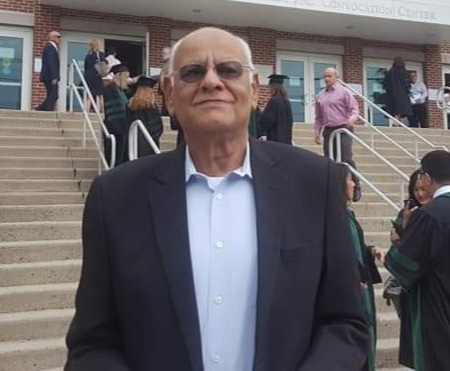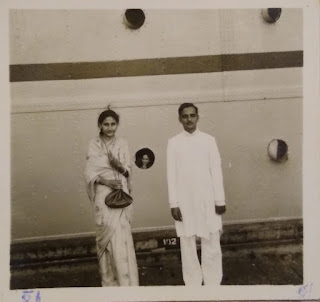Learning and Life
Inspiration to Leadership, Lessons from Life, School/Higher Education, Parental Counseling, IT, Student Counseling.
Wednesday, December 18, 2024
Saturday, July 20, 2024
Test
|
| |
|
| |
|
| |
|
| |
|
| |
|
| |
|
| |
|
| |
|
|
|
S.No |
Programme Date |
TV Channel |
Name of Show |
Programme Title |
Compere |
Place |
|
1. |
6-May-04 |
Geo TV |
Terrorism |
Suicide Bombers |
Hina Khwaja Biyat |
Karachi |
|
2. |
7-Aug-08 |
Aaj TV |
Kiran Aur George Show |
Women Security |
Kiran &George |
Karachi |
|
3. |
3-Jan-08 |
Aaj TV |
Kiran Aur George Show |
Acid Attack on women |
Kiran & George |
Karachi |
|
4. |
14-May-10 |
Geo TV |
Interview of Sqn Ldr Ausaf |
Private Security |
Faiza Shafiq |
Karachi |
|
5. |
13-Dec-10 |
AaJ TV |
Aaj Subh |
Bomb Blasts |
Savera Nadeem |
Karachi |
| 6. |
26-Jan-11 |
Aaj TV |
Aaj Subh |
Self-Defence by Women |
Savera Nadeem |
Karachi |
|
|
|
|
|
|
|
|
|
|
|
|
|
|
|
|
|
|
|
|
|
|
|
|
|
|
|
|
|
|
|
|
|
|
|
|
|
|
|
|
|
|
|
|
|
|
|
|
|
|
|
|
|
|
|
|
|
|
Friday, September 29, 2023
Alif Laila Series of Ferozesons and my love for books
مجھے سب ہے یاد زرا زرا-- تمہیں یاد ہو کہ نہ یاد ہو
Tarzan and My Language Acquisition
Ikram Hyder Naqshbandi Naatia Kalam in Different Languages
میرے دادا کے والد سید اکرام حیدر (1854 - 1942) کی غالباً 1920 کی دہائی کا لکھا ہوا نبی کریم صل اللہ علیہ وسلم کی شان میں کلام، مختلف زبانوں میں
بسم اللہ الرحمن الرحیم
بزبان عربی
للہ الحمد علی راسنا ار سلت نبی
من نبی اقبل احکام شرقی غربی
کان امی لقد ا عالم و علم العجبی
قال واللہ لک؟ رحمت احمد ربی
سیدی مرشدی مولائے محمد عربی
مرحبا سرور عالم تو عجب خوش لقبی
Sunday, September 10, 2023
Doctrine of Necessity Molvi Tamizuddin Khan Case Judgment by Justic Munir Federal Court PLD 1955
P L D 1955 FEDERAL COURT 240
(Appellate Jurisdiction)Present : Muhammad Munir, C. J., A. S. M. Akram, A. R. Cornelius, Muhammad Sharif and S. A. Rahman, JJ
(2) MUHAMMAD ALI,
(3) CHAUDHRI MUHAMMAD ALI,
(4) MAJOR GENERAL ISKANDER MIRZA,
(5)M. A. H. ISPAHANI,
(6) DR. A. M. MALIK,
(7) DR. KHAN SAHIB
(8) GENERAL MUHAMMAD AYUB KHAN, (9) GHYAS-UD-DIN PAIHAN AND
(l0) MIR GHULAM ALI TALPUR
versus
Saturday, August 5, 2023
Remembering Feisal Rahimtoola and Conflicting Perspectives
Saturday, April 29, 2023
Preserving Old Handwritten Bound Manuscripts-Deewan-e-Baqa by Shah Abdul Ghafoor Manikpuri 1854-1930
This post describes how I am preserving the old handwritten poetic manuscripts written around 1880-1930. They had come to me in a bound volume as seen in the picture below. The binding was labeled Deewan-e-Baqa. Baqa being the poetic name, takhalus, of Shah Abdul Ghafoor Manikpuri. Baqa is used in several ghazal and poems in this volume. The experience of Archival of old manuscripts has taught me to become a "heritage detective". The detective is pouring over these old handwritten poetic manuscripts trying to decipher the old hand writing, to find the links and clues spread in these manuscripts, to identify the years when they were written, to identify different handwritings, to identify the links between the different types of cotent pages that were collected in this bound volume, to understand the history of how these pages got collected in this binding which was done some 30-40 years later, to understand the chain of transmittal and weave a credible story around the discovered artifacts.
The next stage is the preservation in protector sheets of these old pages, sending them for scanning, typing and transcription followed by editing and proof reading. Then would come the stage of understanding of the contents, and connecting the contents with the social history of that time, and connecting them with the relevance of our times. This experience reminds me of how archeologists discover, date, investigate, link and try to understand the history of old times by connecting them with different related artificats of that time and the artifacts connected with that time and place.
Tuesday, April 18, 2023
Rauf Momani and Great Memories of a Lively Lady
On 12th of April, 2023, Mrs Parveen Rauf Momani, my mother's brother's wife left this world to meet her creator. Inna lillah e wa inna ilaihi rajioon. May Allah give her the best of abodes in the hereafter. Aameen.
How families Used to Spend Eid Days
How Eid Days were spent:
جب ہم 1980 میں کراچی آئے
تو عرفان بھائی کے ساتھ موٹر سائکل پر میں عید بقر عید سب سے ملنے جاتے- ابا جان امی ہم کو خاسص تاکید کے ساتھ بھیجتے- عرفان بھائی اپنے دوست سے موٹر سائکل ایک دن کے لئے لاتے- چلانا بھی نیا سیکھا تھا
ہم فیڈرل بی ایریا غفیرا آپا کے گھر سے شروع کرتے پھر خلیل بھائی ، ہارون خان، فریدا ،آپا پی ٹی آپا عثمان چچا ،بھیّن بھائی( لقمان چچا کے بیٹے)پاپوش میں بڑے عثمان چچا(اوصاف بھائی کے ماموں)یاسین چچا، بھائی ظہیر الحق،سعید حیدر، سیّد پھپا جمشید روڈ،بڑی خالہ جان بہادرآباد
پھر واپس گھر اس وقت کسی نے کہا تھا کہ بھائی لقمان اور آپا حسنہ آئیں نہ آئیں لوگ ان سے ملنے جاتے تھے کیونکہ وہ بڑے تھے مگر اب انکےبچے دس دفعہ آئیں تو کوئی ایک دفعہ انکے گھر جائے گا اور مجھے یہ بات ہمیشہ یاد رہتی ہے-
اسی لئے جب میں مکہ سے آتی تھی تو رینٹ کار سے کر ایک دن کے لیے لے کر سب سے ملنے جاتی - زہیرا آپا کے ساتھ- لانڈھی سے ناظم آباد تک- ملیر بھی- کیونکہ ہم امی کے ساتھ بھی جاتے تھے
Discovery and Rememberances of a 1951 Journey via Ship from Karachi to London onwards to Brazil
Tuesday, March 14, 2023
Fun of Aurengzeb's Piety and Inferiority Complex
Sociology of Mail Delivery in villages
Promise of AI ChatGPT, Chatbots: How much Truth or Falsehood or Marketing Hype
Thursday, December 29, 2022
Bangladeshi Entrepreneurs vs Rentier Class in Pakistan
Imran Khan ladla wants to play with everyone
لاڈلا کھیلن کو مانگے چاند! ہم سائفر سے کھیلیں گے، ہم امریکی سازش سے کھیلیں گے، ہم آایم ایف سے کھیلیں گے، ہم معیشت سے کھیلیں گے، ہم دوست ممالک سے کھیلیں گے, ہم اسٹیبلشمنٹ سے کھیلیں گے، ہم چیف سے کھیلیں گے، ہم ایجنسیز سے کھیلیں گے، ہم اپوزیشن سے کھیلیں گے، ہم اسمبلیوں سے کھیلیں گے، ہم ارشد شریف کے قتل سے کھیلیں گے، ہم سواتی کی وڈیو لیک سے کھیلیں گے، ہم لانگ مارچ اور دھرنے سے کھیلیں گے، ہم شلوار میں گولیوں سے کھیلیں گے، ہم اپنے اندھے پرستاروں سے کھیلیں گے، اور میں اپنے عشاق سے کھیلوں گا، میں اپنے کھلونوں سے کھیلوں گا- میرے کھلونے میری مرضی
Future of MPhil/PhD in Pakistan
Q: What is the future of MPhil/PhD done through universities in Pakistan? How to build your future through Research?
Ans: Future of MPhil/PhD in Pakistan is now the same as the future of MPhil and PhD abroad--- Future is only in research organizations and universities doing funded research!
Living in Glass-house throwing stones on others. Imran Khan politics of slander and accusations
ہینڈسم آڈیوز کے بعد وڈیوز کی آمد آمد ہے:
Thursday, October 27, 2022
Prof Abdul Razzaq Memon- Credit for basic concepts of computer design and engineering
He was chairperson of Electronic Engineering Department at DCET during 1980s.















